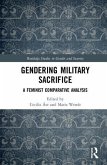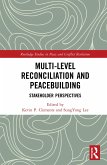This book focuses on the key issues that affect military families when soldiers are deployed overseas, focusing on the support given to military personnel and families before, during and after missions. Compared with the Cold War period, and to a lesser extent the era of mass armed forces, there is a greater need for today's postmodern armies to provide social-psychological support both to their personnel in military operations abroad and to their families at home. Since the end of the Cold War and even more so after 9/11, there has been a multitude of missions carried out by multinational task forces all over the world for more or less extended periods. This implies more frequent separations between military personnel and their families. The book focuses on three central questions affecting military families.First, how do changing missions and tasks of the military affect soldiers and families? This question relates to the way the armed forces seek to adapt their structure to the new missions and how military families cope with competing demands from military and private life. Second, what is the effect of deployments on the ones left behind? Psychologically, a deployment weighs heavily on families and deployed soldiers, who face separation, and therefore the stresses on the soldier and the military family are significant. Third, what is the national structure of family support systems and its evolution? The book employs a multidisciplinary approach, with contributions from psychology, sociology, history, anthropology and others. At the same time it takes a multitude of perspectives such as the theoretical, empirical, reflective, life events (narrative) approach, national and the global, and uses approaches from different disciplines and perspectives, combining them to produce a volume that enhances our knowledge and understanding of military families. The volume covers all the services, Army, Navy/Marines, Air Force, and covers a wide range of different countries. This book will be of much interest to students of military studies, sociology, war and conflict studies, and IR in general.








